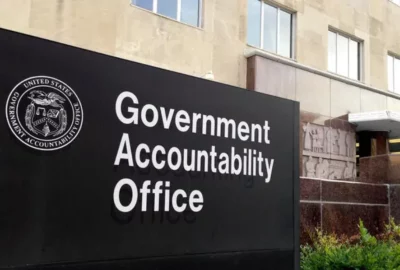On President Obama’s first day in office, he ushered in a new era of open government by challenging agencies to shine more light on their inner workings.
Three years later, that’s not always happening, at least according to the National Security Archive, the group that hands out the Rosemary Award. The award is given to the agency the group believes has the worst open government record.
“This is really a tongue-in-cheek award in a way,” said Tom Blanton, executive director of National Security Archive. The award is named for Rose Mary Woods, President Richard Nixon’s secretary who erased 18-1/2 minutes of White House recording tape during the Watergate scandal.
“The real point is that we’re trying to use the Rosemary Award to highlight some of the lowlights of open government,” Blanton told The Federal Drive with Tom Temin.
“President Obama came in on his very first day and announced a presumption for openness and sent an open government directive around to agencies saying put more of your valuable datasets online and be more responsive to the public,” he said. “We want to be more open in the most transparent, accountable administration in history.”
The least open agency
The Archive has been testing the openness of various government agencies by using Freedom of Information Act requests. At the end of the first year of the Obama administration, only about 13 of approximately 90 agencies could demonstrate real change in their FOIA process, according to Blanton. That number rose to about 49 in the second year.
“As one expert commentator said, at this rate, it will be the end of his four years before they actually do what he asked them to do on the first day,” Blanton said.
The Archive named the Department of Justice the winner of the 2012 Rosemary Award earlier this month.
“Justice should have been the change agent for this open government agenda,” Blanton said. “Instead, Justice’s own performance has been really, pretty terrible.”
Good news too
It’s not a complete bust for Justice, though. Blanton admitted the agency has made some progress in its move toward transparency.
“In our report, we cite ‘mixed’ overall records,” he said. “So there’s some positive things, which we definitely praise. … Freedom of Information requests are up at the Justice Department. They’re doing these roundtable meetings with Freedom of Information requesters to get real dialogue going.”
Melanie Pustay, director of the Office of Information Policy at Justice, appeared on The Federal Drive with Tom Temin on Feb. 24. She touted Justice’s efforts reducing its backlog of 5,160 FOIA requests in fiscal 2010 to 3,816 in fiscal 2011. In addition, the administrative appeal backlog decreased by 41 percent.
The Justice Department took another positive step when it created FOIA.gov, a dashboard to collate and report statistics on how other agencies are doing.
A new feature of the site is the “find” tab that allows users to search for documents across the entire federal government, Pustay said.
“We’re really hopeful that that feature will enhance the availability and access of information to the public and … without any need for anyone to make a FOIA request,” she said.
Prosecuting whistleblowers
“If there’s been a single set of actions by the government that has stomped on President Obama’s open government message, it’s been this series of six prosecutions of present or former government officials for talking to journalists,” Blanton said. “The Justice Department has been going after these, what we believe on the outside, are whistleblowers.”
As an example, he pointed to the case of Thomas Drake, a former National Security Agency employee who faced felony charges under the Espionage Act for talking to journalists who were investigating mismanagement at the agency.
“This is a classic example of a case where the public needed to know about that mismanagement,” Blanton said.
In its Rosemary Award citation, the Archive offered guidance on how it believes DoJ could improve its openness.
“We point out in the Rosemary citation that this entire dynamic of going after whistleblowers and this really abusive dynamic of using the espionage laws to criminalize conversations between officials and journalists is just wrong,” he said. “It’s a bad policy choice. It sends the opposite message from open government.”
Blanton cited the Environmental Protection Agency as an example of an agency on the right track to transparency and openness. He said the agency has been one of the technological innovators. Not only is it putting datasets online, it’s also developed technology that helped launch Regulations.gov, which aims to make all government regulations available online.
RELATED STORIES:
DoJ reduces FOIA backlog by 26 percent
Justice Dept gets `award’ for worst secrecy work
Copyright
© 2024 Federal News Network. All rights reserved. This website is not intended for users located within the European Economic Area.





